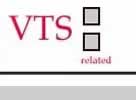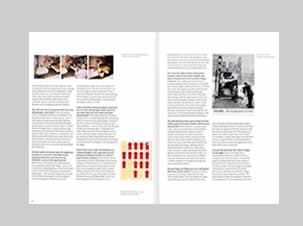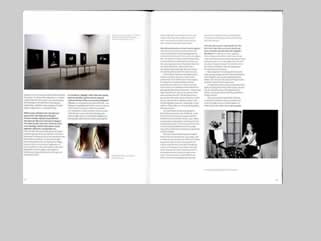


















 |
 |
 |
 |
 |
|||||||
 |
 |
 |
|||||||||
 |
 |
 |
 |
||||||||
 |
 |
||||||||||
 |
 |
||||||||||
 |
 |
||||||||||
 |
|||||||||||
I like working with other people - e.g. John Gage on G.F.Watts, Phil Beard on FORTUNE, John Vernon Lord and his Narrative Illustration, Roy Church on Design and the Volume Car Market. Most enduring of all in my imagination are the interviews, another sort of collaboration. Nigel Henderson suspended his caution and wrote astonishing responses to my questionnaires in between meetings. John Lord was my first boss in Brighton and a delightful daily companion at the workface. My interviews with David Watkin helped him proceed with his memoirs. There was always lunch with salmon and raspberries. Humphrey Spender I hadn't met before but we got on famously and he told me my essay liberated him into considering his own autobiography. We even confessed in a local pub shame at a hidden love for Gilbert and Sullivan. I wanted the interviews to give the reader the impression of being there in the studio, to sense the energy and the potential of the person. My interviews with Clare Strand were recorded over a short period, spoken to be recorded, typed up and edited for publication (Steidle 2009). We had talked and written to each other on a regular basis about her work and my changing attitudes as to what Images could do. We shared a dislike of the cultural pretensions of Photography and its professional hierarchies. I tried to sustain the semi-opaque presence as I had with the other interviews, barely glimpsed off screen (like the interview with Nigel Henderson for Cologne TV). It was difficult because I found her work so challenging, exciting and raw. Over an eight year period I had shared her imagination and was in a privileged position to represent her responses to the reader of this book. We shared so many images in common, often unbeknownst to the other. The addition of double page spreads of indicative research imagery in the book was inspired, not only to provide breathing space, but to keep the text in a constant state of flux. The meaning of the text was precise but could always be re-visited in the light of pictorial discoveries overleaf. Other interviews read in retrospect like the acknowledgment of the end of something, a period of work say , a "Vale' in the case of David Watkin and Humphrey Spender. With Clare the interview effortlessly revealed a bewildering range of options at her disposal, and indicated with a body of text and a cunning deployment of images, the existence of so many powerful and stimulating projects that lie in her future but without committing herself to a timetable or programme. When I saw the printed pages, there was a precision about the story she told but with a heartening sense of freedom.
|